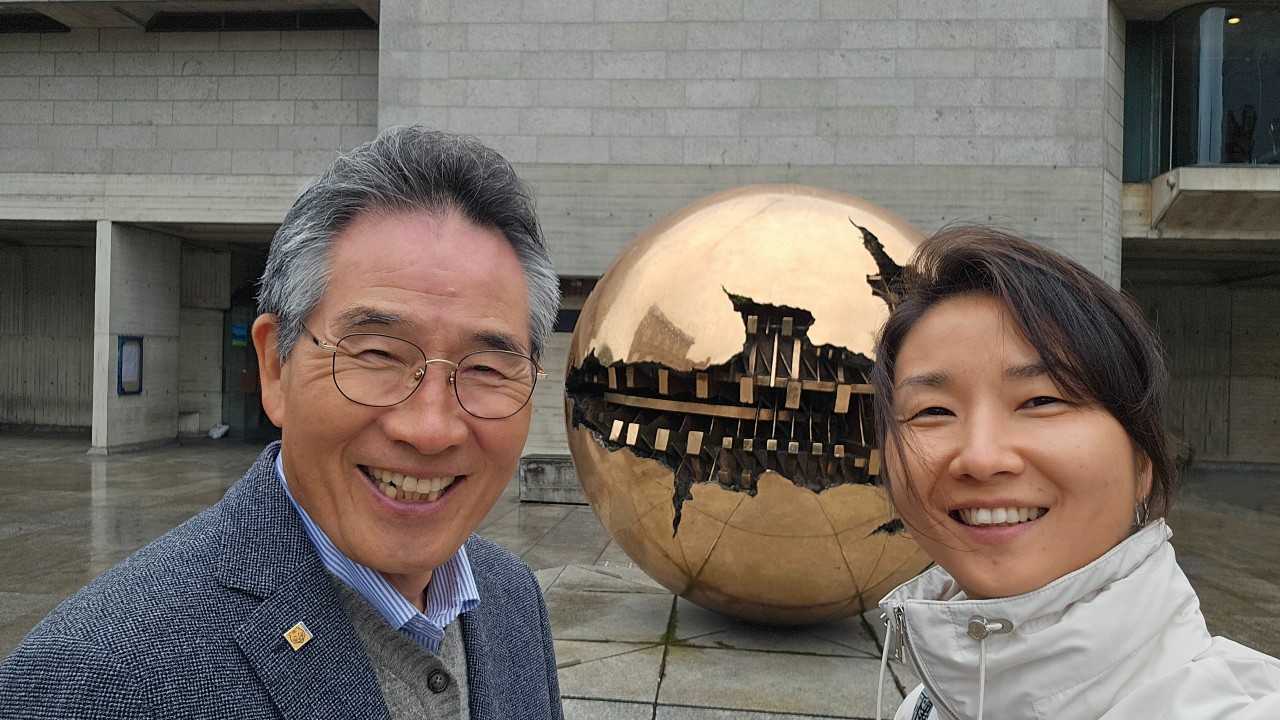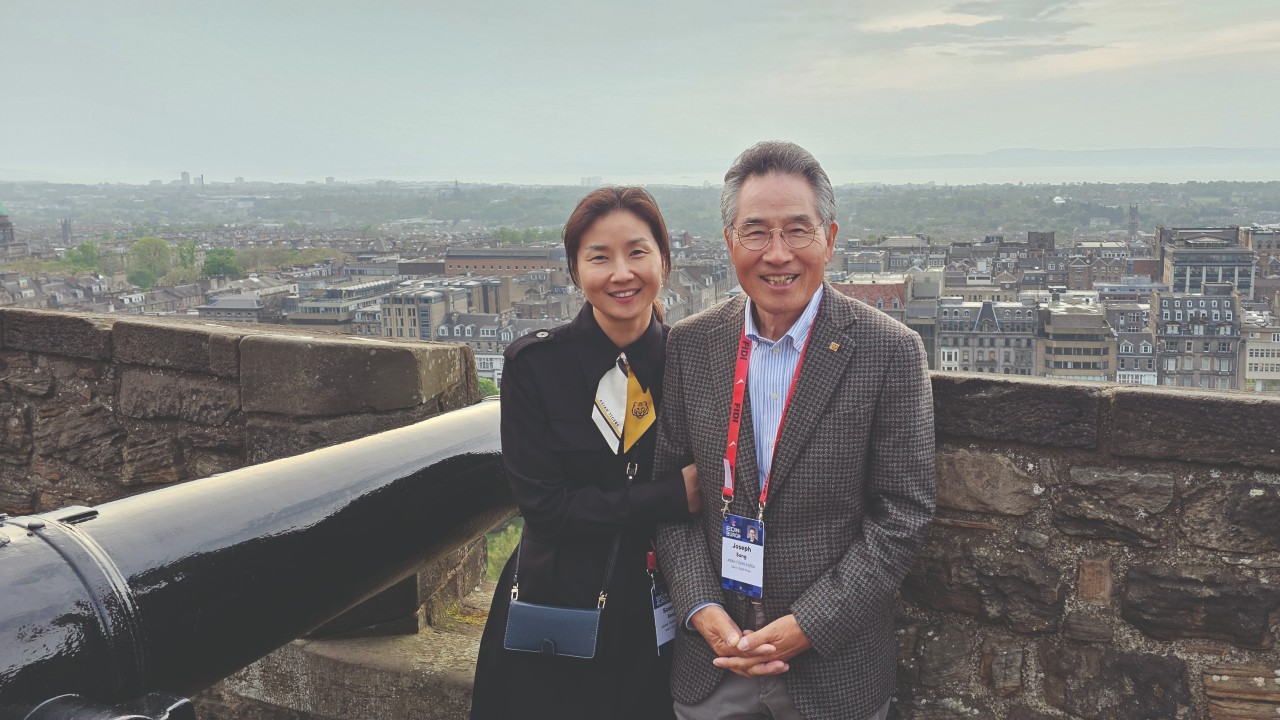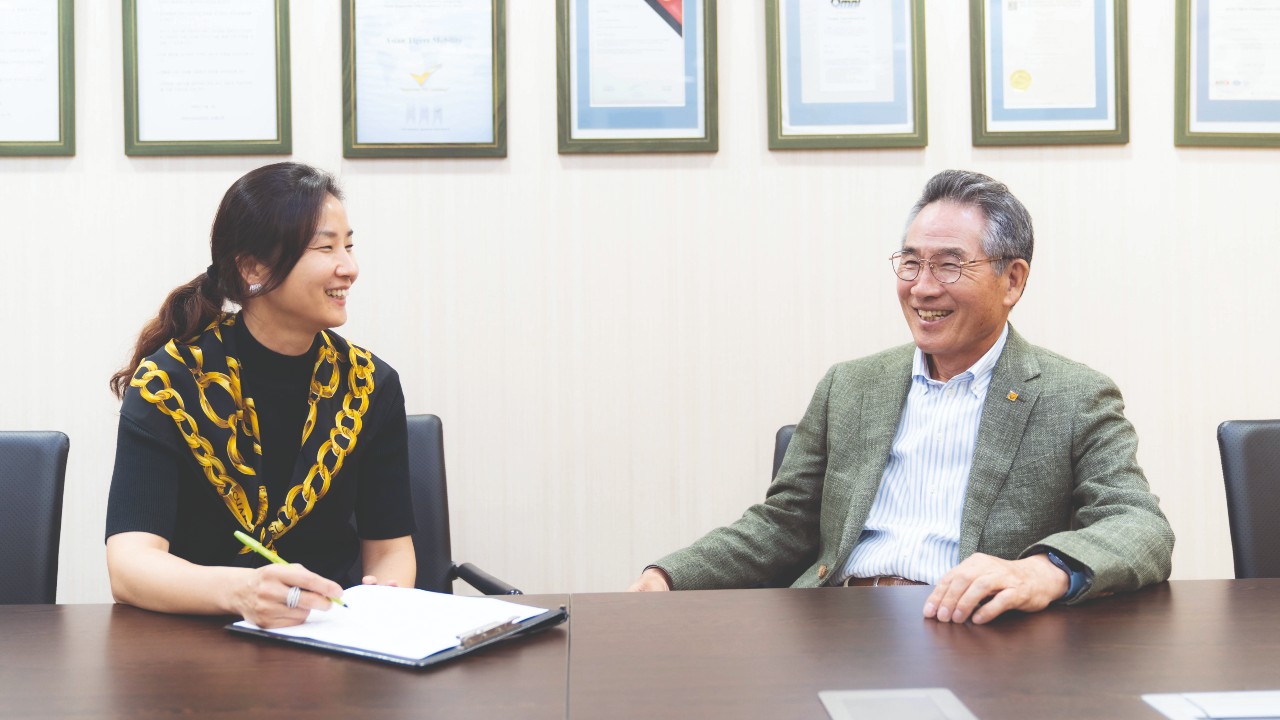After a moving industry journey that began in the aftermath of the Korean War and has spanned six decades, Joseph Song retired from his position as head of Asian Tigers Korea in August this year.
As he becomes Chairman Emeritus of the company he founded, he is passing the reins to his daughter, Saenah Song. Here, she interviews her father about his time in the industry, their working relationship, and his thoughts on succession in a thriving family business.
Why did you start the business? What attracted you to the moving industry?
I was born right after the Korean War, so while I was growing up, I was living in a country where citizens of all walks of life faced daily difficulties trying to survive. The country was trying to find its footing to rebuild itself.
In the early 1970s, I had to find ways to financially support myself and use my education in the best possible way. Thanks to an acquaintance’s introduction, I started working part-time at an overseas moving company. These were the initial steps I took that led me to a lifelong career in this industry.
After a few years, I decided to branch out and, in 1984, I established a company of my own. I have spent the last 40 years growing this business into what it is today.
For me, the biggest attraction of the moving industry is the friendships forged with customers and industry peers, along with the relationships established with our worldwide partners. These lifelong and priceless connections go beyond packing for a move or simply trying to win the next contract.
What were the biggest challenges back then?
During the 1980s, Korea was developing at a fast pace. Across the country, Koreans were instilled with the belief that they could accomplish anything if they worked hard towards their goals.
However, as fast as Korea and the economy were growing, there were still challenges, with inadequate infrastructure, warehouse, and transportation equipment. For the six months after launching the company, our biggest worry was how we could survive if our sales efforts did not go through as planned.
But everything went better than expected and, although cash flow was challenging at times, the company received a lot of help from those clients who paid promptly after the completion of a packing job.
At what point did you realise the company was going to be successful?
I never predicted success. If I had started out with the knowledge of how to run a business well, things wouldn’t have been the same.
We had numerous setbacks, trials, and tribulations over the years, including external and internal crises. The company faced its share of obstacles, but the dedication and effort of our staff helped us to overcome them whenever they arose.
What were the values you built the company on – and have they changed over time?
Back then, everyone had the same goals; most had a family and needed to find a way to make a living. I can’t say I had any lofty goals or objectives – I was just looking for a way to live.
We should meet our customers’ needs by providing the best service, not necessarily the most expensive. Our quality standards will be the same for everyone, but at the same time, the best service cannot be the cheapest. Even when we adhere to our principles, we always remain flexible and try to exceed our customers’ expectations.

How have our own family values influenced your approach?
I feel very fortunate to see all my family members in good health and enjoying good living conditions. This feeling extends to the company’s staff, who I see as part of the family too. When I look back, I believe I spent more time being with and working with company members than I did with my own family. The value of family, direct or indirect, means I have the responsibility to support everyone well.
What part has FIDI played in our journey?
We understand the importance of offering high-quality industry education to nurture promising talents for career growth. The diverse educational programmes provided by the FIDI Academy have made a significant contribution to our personnel development.
FIDI’s FAIM programme has helped us select worldwide partners by verifying and certifying various aspects of a company’s management qualifications. Furthermore, the annual FIDI Conference in different locations offers valuable opportunities to engage with our friends and partners, allowing us to collaborate and support each other effectively.
How do you feel about the future of the company?
I started thinking about the future of the company while I was attending the 150th anniversary for Keller Swiss in 2005. I learned that a company must have a long, rich history and grow sustainably. It led me to consider the ways in which I could shape the company’s path forward and prepare it for the next generation.
Is it good to have family involved in the company?
It makes me very happy to have my family continuing the business. You (Saenah) showed an early interest in the industry, which helped shape your life choices and prepare you for a career in the company.
From university studies, living abroad, internships at different moving companies, and attending conferences with me, every path you took has brought you to today.
Should they choose to do so, I hope future generations of my family can continue the business, too.
What has it been like working alongside your daughter?
There are clear generational gaps between us, as we tend to see things differently because we grew up in different times. I was born into an underdeveloped country, whereas you were born into a middle-income country, so our developmental environments were contrasting.
When opinions differ between two parties, I try to recognise these as simple differences rather than ‘right’ or ‘wrong’.
What has been the best part of this journey for you
This moment right now. The best part of my life is that I can retire as I had planned. I am happy to be able to retire in good health and to pass the business down to my family.
I also hope you can manage the company well and see it grow sustainably – but I don’t worry so much about it, as it is now out of my hands.

Where do you see our company in the next 10 to 20 years?
It is challenging to predict what our company will be like or how the industry will change 10-20 years from now – that is not my area of expertise. We need to remain flexible and open in our approach, concentrating on growth and determining how to best adapt as the market changes.
What advice would you give to future generations of our family who may be in charge?
The story of our company is an ordinary one. If I were to emphasise key aspects of running the business, it would be the importance of always being flexible in all aspects and being financially liquid.
There is a saying that one should prepare for difficult times during periods of ease. In other words, I believe that a company can’t thrive without first facing challenges and setbacks.
Final Thoughts
Joseph Song now becomes Chairman Emeritus of Asian Tigers Korea. He is retaining his work email address at joseph.song@asiantigers-korea.com and aims to stay connected with international colleagues. He is relocating to be closer to his hometown in Jeonju, Korea, to relax and catch up with old friends – and take up new hobbies.

